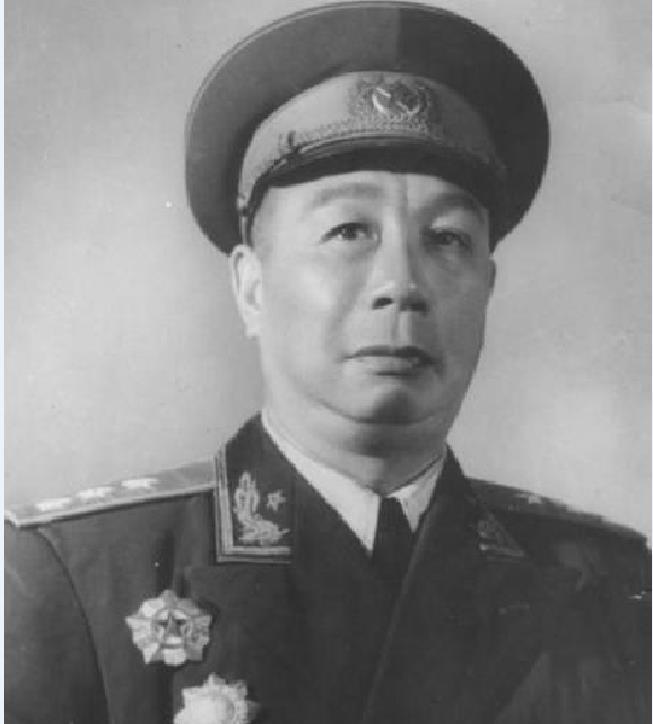Admiral Li Da was a famous chief of staff, but there was also a founding general who served nine terms of staff in his lifetime and participated in the whole process of the Huaihai Campaign, and General Deng and General Chen competed for him, and he was the famous general Chen Shiyu.
Chen Shiyu was born in April 1909 in a poor family in Huangtupi, Wuchang, Hubei Province, and dropped out of school. When he was 16 years old, he was introduced to a grocery store as an apprentice, and every day he was tired and dizzy, but he did not have enough to eat and wear. Later, he participated in the organization of peasant associations in his hometown, and later participated in the student military training class held by the Hubei Provincial Party Committee, and was incorporated into the guard regiment of the General Headquarters of the Second Front Army of the National Revolutionary Army in Wuchang.

During the agrarian revolution, Chen Shiyu participated in the Autumn Harvest Uprising and arrived at Jinggangshan with his troops. In 1930, he served as the chief of staff of the 34th Division and participated in all the anti-"encirclement and suppression" campaigns in the Central Soviet Region. In the fifth anti-"encirclement and suppression" campaign, he participated in the command of the Battle of Wenfang, annihilating more than 4,000 Kuomintang troops. In October 1934, after Chen Shiyu arrived in northern Shaanxi with the Red Army on the Long March, he served as the chief of staff of the Red 4th Division. At the end of 1936, Chen Shiyu served as the chief of staff of the Red 30 Army.
During the War of Resistance Against Japanese Aggression, Chen Shiyu served as chief of staff of the 343rd Brigade of the 115th Division and was an important military assistant to the brigade commander Chen Guang. Chen Shiyu participated in and commanded the Battle of Pingxingguan, but unfortunately did not capture the Japanese prisoners. However, shortly after the Battle of Pingxingguan, Chen Shiyu actually personally captured a Japanese prisoner.
On that day, the Eighth Route Army surrounded a courtyard with a ghost in it, and the Eighth Route Army wanted to throw a grenade to kill the prisoner, but was stopped by Chen Shiyu, who wanted to capture the ghost alive. So Chen Shiyu stepped forward alone, grabbed the devil's pistol, threw the devil to the ground, and captured him alive. This was the first Japanese prisoner captured by the Eighth Route Army. Chen Shiyu's reputation was shocked for a while.
In 1940, Chen Shiyu came to the battlefield of Shandong behind enemy lines, and Zhou Kun, the chief of staff of 115, fled, so Chen Shiqu took over Zhou Kun's post as chief of staff of the 115th Division, assisting Chen Guang and Luo Ronghuan in their work.
After the victory of the War of Resistance Against Japan, Chen Shiyu went to the Beiping Army Transfer Department as chief of staff and participated in the negotiations of the Kuomintang side.
During the Liberation War, Chen Shiyu served as chief of staff of two armies, one was the chief of staff of the New Fourth Army and the other was the chief of staff of the Shandong Field Army. Later, the Shandong Field Army and the Central China Field Army merged to form the East China Field Army, and Chen Shiyu still served as chief of staff. He successively commanded the Battle of Laiwu and the Meng Lianggu campaign.
In the second stage of the Huaihai Campaign, Huang Wei stubbornly resisted, and at the critical moment, Deng Pihua transferred Chen Shiyu to assist in the command, and he asked Chen Shiyu to think more ideas in this battle. Chen Shiyu immediately began to investigate and study, and he proposed to concentrate his forces to first hit the sharp grain pile, and then take advantage of the superior terrain to hit the flat valley pile.
Chen Shiyu's suggestion had an effect, and Huang Wei's corps was quickly destroyed. At this time, Chen Shiyu received another call from General Manager Chen, asking him to rush back to participate in the battle to encircle and annihilate Du Yuming's group. The whole process of the three phases of the Huaihai Campaign. Chen Shiyu participated, and later the Third Field Army was established, chen Shiyu no longer served as chief of staff, but became the commander of the corps, in charge of the Eighth Corps, and his staff career ended.